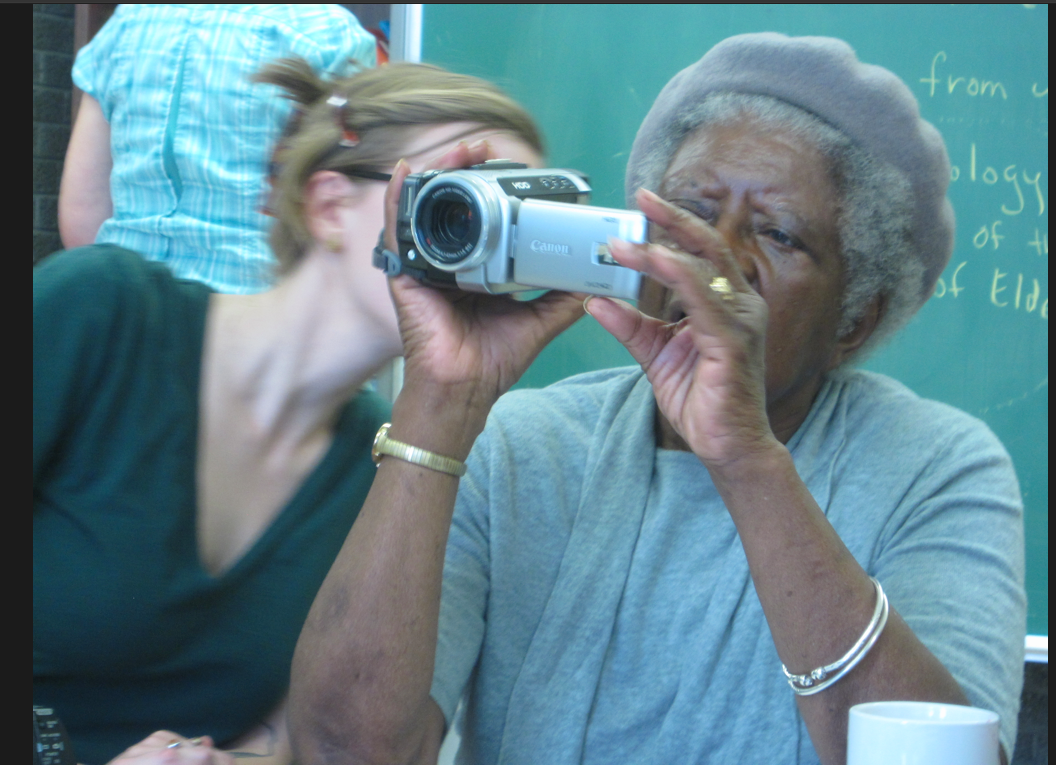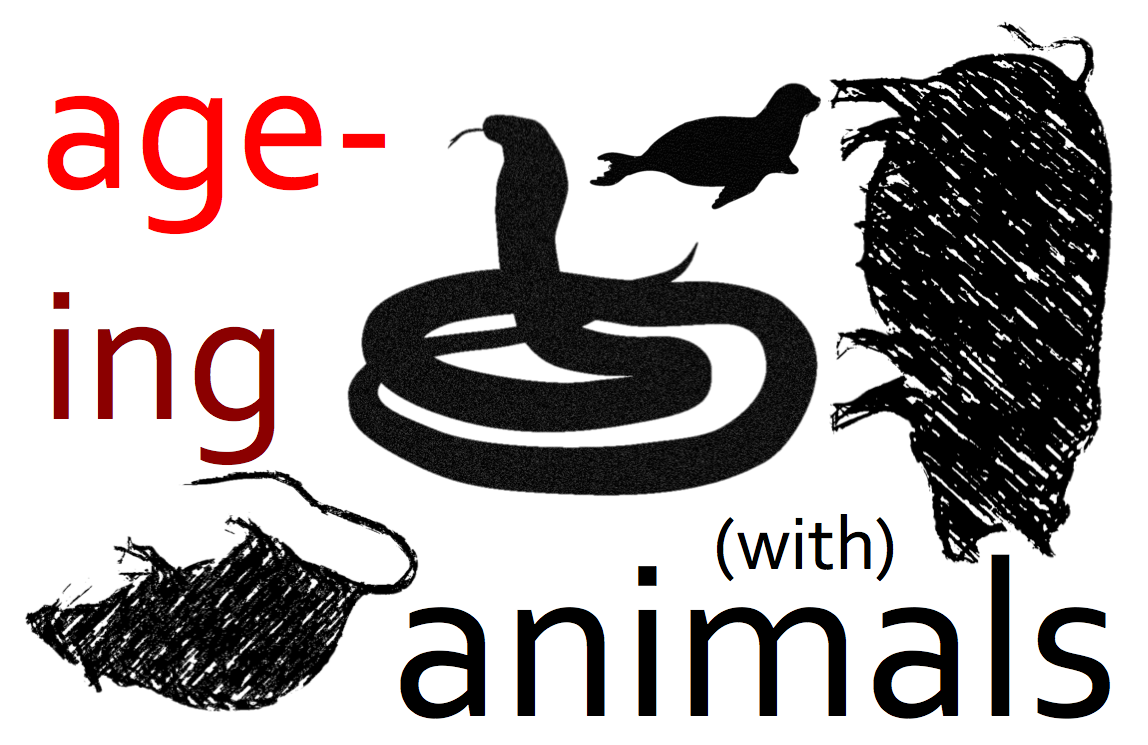‘Grannie’s on Facebook’ presented in Bournemouth, UK
Presentation by ACT researchers Loredana Ivan and Shannon Hebblethwaite.
Presentation by ACT researchers Loredana Ivan and Shannon Hebblethwaite.
Miriea Fernández-Ardèvol participated in the 4th Conference on Elderly and New Technologies, organized by Jaume I University, between the 13th and 15th of May 2015 in the city of Castelló, Spain. The special topic of this edition of the conference is Technology on the go, which focuses on gadgets such as tablets, smatphones, wearables …; ubiquitous and personal connectivity; Internet of things; cloud services; and apps, among the most common topics.
Mireia delivered her presentation on May 13th looking at mobile apps to discuss on ageism embedded in research endeavours:
Older people are commonly depicted as avoidant or incapable of properly using digital technologies. These stereotypes shape public opinion, and even the expectations of what an older individual can do, for instance, with a Smartphone: Would they know how to use it? Would they go beyond voice calls? Do you think they would be interested on apps? By taking into account available research showing that these are outdated stereotypes, I propose a reflection around them by looking at specific examples of mobile communication.
Murray Forman, ACT researcher and Associate Professor in Media and Screen Studies at Northeastern University presented on his research on March 17 at ACT partner institution the University of Graz.
While hip-hop is commonly associated in many mainstream contexts with youth practices and tastes, it has been a long time indeed since it could easily be defined as a facet of youth culture; generational turbulence abounds within contemporary hip-hop. Professor Forman critically examines the ways in which the past (as lore, tradition, and legacy) is constructed and understood in contemporary hip-hop and illuminates the manner in which individuals of different ages interact with one another according to multiple factors relating to experience and familiarity, rules, laws, and wider cultural norms as well as established hip-hop conventions. By focusing on an alternative cartography of age and aging he offers new perspectives on the character and representation of hip-hop elderscapes.
The 2016 edition of the Centre for Women, Ageing, Media (WAM) Summer School will be held at the University of Gloucestershire on June 23rd and 24th.
ACT co-applicant Barbara Marshall will lead the keynote presentation/workshop. The School welcomes applications from new researchers and from PhD students. ACT is sponsoring the School and will offer some funding from students. The deadline for applications is May 31, 2015 and the call for applications is available here.
The COST-Action project on ageism, funded by the EU and led by Liat Ayalon, held its first meeting on April 27 and 28 in Dublin, Ireland. ACT members Mireia Fernández-Ardèvol, Eugène Loos, Loredana Ivan and Maria Soubati are part of the COST-Action and Eugène Loos leads, with his colleague Monika Wilinska, the subgroup on Ageism and Media. Kim Sawchuk, Shannon Hebblethwaite and Constance Lafontaine also attended the meeting, and it was decided that the COST-Action project on Ageism and ACT, two newly-funded and significant research projects on ageing, would connect and collaborate in the future.
The ACT Silver Gaming Intergenerational Summer School (SGISS), organized by Margarida Romero, will be held from August 21-22 2015 at the Université Laval in Québec City, Québec. SGISS will bring together students, elders and scholars in activities that aim to explore intergenerational digital creation activities as well as to exchange on the conception, the development and the uses of digital games in social sciences. For more information on the school, and opportunities for funding, please consult the call for applications.
 Respecting Elders: Communities Against Abuse (RECAA) has received the Engaged Scholar Award attributed to a community partner by the University of Concordia’s Office of Community Engagement. RECAA will be recognized for their collaborative work in advancing scholarship through their work with ACT on April 9 during a ceremony held at the Loyola Campus of Concordia University. The award comes along with a $1,000 prize that will go towards continuing work done by RECAA in addressing issues of elder abuse. For more information about RECAA, please consult their website.
Respecting Elders: Communities Against Abuse (RECAA) has received the Engaged Scholar Award attributed to a community partner by the University of Concordia’s Office of Community Engagement. RECAA will be recognized for their collaborative work in advancing scholarship through their work with ACT on April 9 during a ceremony held at the Loyola Campus of Concordia University. The award comes along with a $1,000 prize that will go towards continuing work done by RECAA in addressing issues of elder abuse. For more information about RECAA, please consult their website.
On March 20, 2015, several members of ACT presented on the topic of Les TIC pour le vieillissement socialement actif et en bonne santé. The presentation, held at the Musée des civilisations in Québec City, took place as part of the Rencontres science et société de Québec, an event that attempts to create bridges between the university and the general public in creative and informative ways, through a series of roundtable discussions and exhibits. This roundtable was organized by Margarida Romero, an ACT researcher and professor at the Université Laval, as well as Nadia Kichkina also of Université Laval. Other ACT members included ACT postdoctoral researcher Maude Gauthier, as she presented on the work of ACT broadly and on two specific ACT projects: ACT-Wiki and InterACTion. Sadeqa Siddiqui, the current president of Respecting Elders: Communities against Abuse (RECAA), an ACT community partner, presented and screened some videos that depict the work of RECAA. Brietta O’Leary, a research assistant with ACT and a MA student at Concordia University, discussed her involvement with RECAA and the work she does with them on digital technologies.

ACT is organizing a brainstorming day on the theme of Ageing (with) animals on Saturday, April 4th, 2015 on the SGW campus of Concordia University in Montreal from 10 am to 4 pm.
Humans share life courses with other species: often willingly with cats, dogs and other “pets” in tightly tangled relationships. We age with pets. And they age with us. But also these relationships can become difficult, disrupted and untenable, especially through conditions of old age. Animals are otherwise commodified for entertainment, get euthanized in zoos and circuses when they get old, less active, less lucrative and more expensive. Or they are moved to sanctuaries for them to retire out of sight, and indeed it is even possible to talk about animals retiring. Animals, live and animatronic, are enlisted in old age homes and hospitals for therapeutic purposes. Animal figures are routinely taken up in our lexicon of ageing bodies, often in ways that reify (hetero)normative social orders (cougars, silver foxes and cat ladies). In addition, the proliferation of ageing human bodies and our increasing life expectancies are enabled by medical innovation and testing that intimately rely on the confinement, mistreatment and death of other species.
The idea for the Ageing (with) animals day is as follows: we come together to discuss and explore our overlapping creative and research interests on animals and ageing. We explore intersections and generate discussions on the multiplicity and connectedness of ageing bodies and life courses: a line of questioning that is often excluded from the way ageing and cultural studies have thought about age, and even from the way animal studies have engaged with the topic of animal lives. Among others, ACT collaborator Dr. Teresa Mangum from the Obermann Center and from Gender, Women’s and Sexuality Studies at the University of Iowa will join us.
SB 403
Concordia University
Those interested in participating can contact constance (dot) lafontaine (at) concordia (dot) ca.
ACT is co-sponsoring the Playing Age symposium, to be held February 27 and 28 at the University of Toronto. The inter-disciplinary symposium is co-organized by ACT collaborator and Professor Marleen Goldman and Professor Lawrence Switzky of the University of Toronto. Kim Sawchuk, Director of ACT, will discuss “Challenging Digital Ageism through Research Creation” and Stephen Katz, ACT co-applicant, will present “Use It or Lose It!: Brain Games and the Performance of Age.”
The symposium “Playing Age” offers a humanistic exploration of aging, old age, and inter-generational relations. Seminal theorists of play, from Johan Huizinga to Roger Caillois, claimed that rule-bounded games and mimetic enactments create a “magic circle” in which conflicts within the self and the community can be negotiated at a safe remove. More recently, performance and game theorists have insisted that even playing within the bounded precincts of a stadium, a theatre, or a video game influences everyday conduct, particularly when we play with volatile topics like inter-cultural representations, social class, race and gender. This symposium asks how aging and old age can be investigated through playing, specifically the playfulness of artistic representations, and whether aging is uniquely available for or resistant to imaginative inhabitations.
For more information about the symposium, including full programme, please consult the website: https://playingage.wordpress.com.
